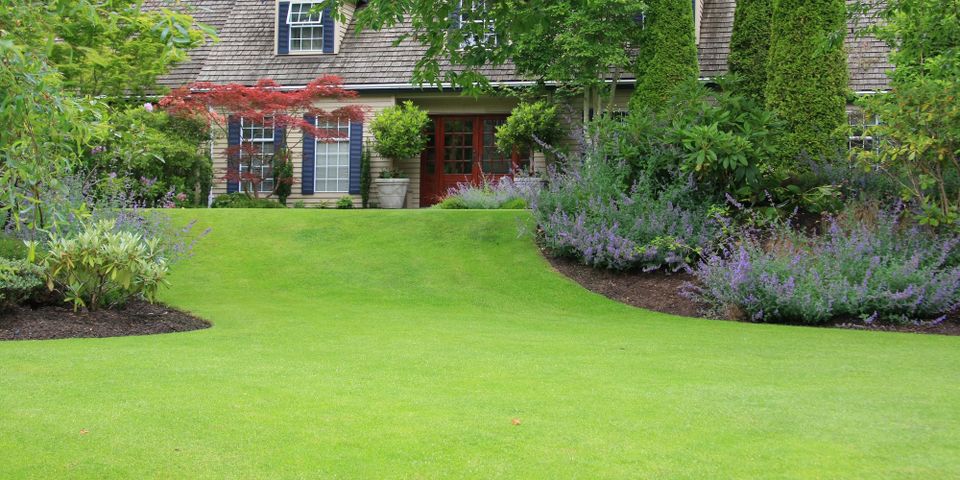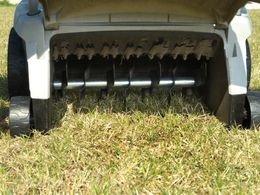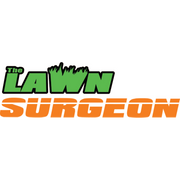
While a thin layer of thatch on your lawn increases grass resilience, insulates the soil, and provides a cushion for walking, thick layers can have a smothering effect among other lawn care problems. There’s a right time to eliminate it to help create a beautiful, healthy lawn–you just have to know when.
What is Thatch?
A mixture of dead grass, leaf debris, shoots and stems, and living grass, thatch and its thickness depends in part on the grass species. Cool-season grasses such as creeping red fescue, Kentucky bluegrass, and creeping bentgrass have an increased risk of thatch compared to tall fescue and perennial ryegrass species that bunch.
There are other risk factors as well, such as acidic soil with few thatch-decomposing organisms, and overfertilization that increases nitrogen content, promoting stem and root production.
risk factors as well, such as acidic soil with few thatch-decomposing organisms, and overfertilization that increases nitrogen content, promoting stem and root production.
Excessive thatch prevents oxygen, sunlight, water, and fertilizer from reaching the grass’s roots and creates a humid environment ideal for fungi and insect infestations.
When is the Right Time to Dethatch?
Dethatching, or core aeration, promotes new growth by cutting through stems and roots in addition to protecting against diseases and pests. Request dethatching during a period of growth for your lawn. This will give the blades space to thrive. If you have cool-season grasses, schedule dethatching during active growth periods in the late spring, late summer, or early fall. If your lawn features warm-season grasses, opt for spring or summer dethatching.
Aftercare
Post-dethatching lawn care includes leaving any resulting soil plugs on the lawn as topdressing. Plugs feature nutrients that help roots grow vigorously. Remove any thatch piles and seed the lawn to enjoy thick turf.
Prevent thatch from returning by adding tall grass seeds to high-traffic areas of your lawn. Keep large, heavy objects off the grass to prevent compacting in your yard. Follow mowing guidelines for your grass species, avoid excessive fertilizing, and periodically test soil acidity. Make overly-acidic soil more alkaline by adding lime product.
Schedule dethatching services with The Lawn Surgeon LLC in Hartford, CT, to avoid fungi and other problems interfering with healthy grass. Since 1985, this family-owned lawn care company has provided core aeration, landscaping, and seasonal lawncare services to clients throughout Middlesex County. Call (860) 635-1127 today to make an appointment or visit the lawn care team online for the latest specials. Get more landscaping tips on Facebook.
About the Business
Have a question? Ask the experts!
Send your question

